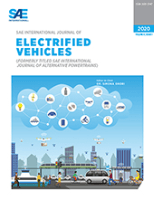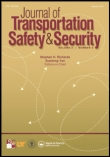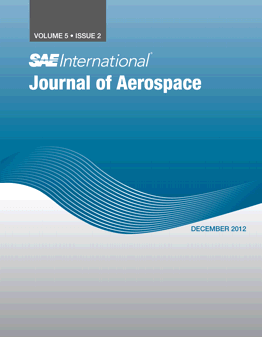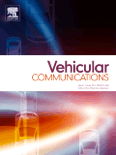
SAE International Journal of Commercial Vehicles
Scope & Guideline
Driving Innovation in Commercial Vehicle Engineering
Introduction
Aims and Scopes
- Innovative Vehicle Design and Optimization:
Research on improving vehicle structures, such as chassis and suspension systems, through methodologies like finite element analysis and design optimization techniques. - Powertrain and Fuel Efficiency Technologies:
Investigations into the efficiency of powertrains, including hybrid and electric systems, as well as studies aimed at enhancing fuel efficiency through advanced engineering solutions. - Vehicle Dynamics and Control:
Exploration of multibody dynamics, stability control systems, and driver assistance technologies to ensure the safety and comfort of commercial vehicles. - Environmental Impact and Emissions Reduction:
Studies focused on reducing emissions through various technologies, including exhaust aftertreatment systems and energy management strategies for hybrid and electric vehicles. - Autonomous and Connected Vehicle Technologies:
Research on the development of autonomous driving systems, vehicle-to-everything (V2X) communication, and path planning algorithms for enhancing operational efficiency.
Trending and Emerging
- Electric and Hybrid Vehicle Technologies:
There is a growing emphasis on the development and optimization of electric and hybrid vehicle systems, reflecting the industry's shift towards sustainable transportation solutions. - Advanced Driver Assistance Systems (ADAS) and Autonomous Vehicles:
Research on ADAS and autonomous vehicle technologies is increasingly prevalent, indicating a trend towards enhancing safety and operational efficiency in commercial vehicles. - Computational and Simulation Techniques:
The use of computational fluid dynamics, machine learning, and simulation methodologies is on the rise, showcasing a trend towards data-driven approaches for vehicle design and performance evaluation. - Vehicle Cabin Air Quality and Comfort:
Emerging research on improving vehicle cabin air quality and occupant comfort is gaining traction, responding to increasing concerns about health and environmental standards in vehicle design. - Integration of Smart Technologies in Vehicle Systems:
The incorporation of smart technologies, such as sensor networks and connected vehicle systems, is becoming a focal point, highlighting the industry's move towards more intelligent and efficient vehicle operations.
Declining or Waning
- Traditional Diesel Engine Optimization:
Research focusing on conventional diesel engine performance and optimization has decreased, possibly due to the industry's shift towards electric and hybrid technologies. - Mechanical Systems without Advanced Control Methods:
There is a noticeable reduction in studies that solely focus on mechanical systems without integrating advanced control strategies, indicating a move towards more sophisticated, technology-driven solutions. - Basic Aerodynamics Studies:
Basic studies on vehicle aerodynamics are less frequent, as the focus has shifted towards more integrated approaches that combine aerodynamics with other vehicle dynamics and control systems.
Similar Journals

SAE International Journal of Electrified Vehicles
Exploring the Frontiers of Electric Vehicle EngineeringSAE International Journal of Electrified Vehicles, published by SAE International, is a pioneering journal dedicated to the field of electrified transportation. Operating since 2020, this journal offers a crucial platform for researchers, engineers, and practitioners who are at the forefront of advancements in vehicle electrification and related technologies. With an ISSN of 2691-3747 and an E-ISSN of 2691-3755, it is indexed within respected databases, showcasing its commitment to high-quality research in Automotive Engineering and Fuel Technology. As part of the Q3 category in the 2023 rankings for both automotive and energy sectors, the journal facilitates the exchange of innovative ideas and groundbreaking studies that contribute to the evolution of the electrified vehicle industry. While currently not open access, the journal offers various subscription options for readers, making valuable insights accessible to a broad audience. Conducting research in this dynamic field, the SAE International Journal of Electrified Vehicles is vital for professionals striving to push the boundaries of technology and sustainability in modern transportation.

Journal of Transportation Safety & Security
Championing collaboration for a safer transportation future.The Journal of Transportation Safety & Security (ISSN: 1943-9962; E-ISSN: 1943-9970), published by Taylor & Francis Inc, stands as a pivotal resource for professionals and researchers in the fields of safety research and transportation. Since its inception in 2009, this journal has delivered rigorous peer-reviewed articles that explore critical issues relating to safety and security within the transportation sector. With an impressive impact factor reflecting its scholarly significance—ranking Q1 in Safety Research and Q2 in Transportation as of 2023—this journal occupies a unique position in the academic landscape, encouraging innovation and collaboration among researchers dedicated to improving safety measures. The Scopus rankings further affirm its status, placing it 17th out of 109 in Safety Research and 49th out of 141 in Transportation. Readers can expect contemporary discussions and comprehensive reviews tailored to both practitioners and academics alike, effectively bridging the gap between theory and application. Explore the Journal of Transportation Safety & Security to contribute to a safer and more secure transportation environment.

eTransportation
Driving Innovation in Transportation ResearcheTransportation is a premier academic journal published by Elsevier, dedicated to advancing the fields of Automotive Engineering, Electrical and Electronic Engineering, Energy Engineering and Power Technology, and Transportation. Since its inception in 2019, the journal has achieved an outstanding reputation, maintaining a prestigious Q1 ranking across multiple categories in the 2023 Scopus rankings, including a remarkable top position in Automotive Engineering. With an impact factor reflecting its influence and rigorous peer-review process, eTransportation serves as a vital platform for researchers, professionals, and students alike, fostering innovation and disseminating vital research findings that shape the future of transportation technologies. Based in the Netherlands, it supports open access options that enhance the visibility and accessibility of research, ensuring scholarly engagement worldwide. As the field evolves, eTransportation is poised to lead discussions and advancements towards more efficient, sustainable, and intelligent transport solutions.

Journal of Aerospace Information Systems
Pioneering Research for Tomorrow's Aerospace ChallengesJournal of Aerospace Information Systems, published by the American Institute of Aeronautics and Astronautics, is a premier scholarly platform dedicated to advancing the interdisciplinary field of aerospace information systems. With a focus on innovative research and practical applications, this journal supports the dynamic integration of aerospace engineering, computer science, and electrical engineering. Positioned in Q2 quartiles for 2023 in its respective categories, it ranks notably in Aerospace Engineering (#52/153) and Electrical and Electronic Engineering (#357/797), indicating its significant influence within the scientific community. Research published within its pages addresses a diverse range of technological advancements and applications that are vital for the development of contemporary aerospace systems. As an open-access journal, it facilitates broader dissemination of knowledge, allowing researchers, professionals, and students to engage with cutting-edge discoveries and methodologies. With its competitive impact and commitment to fostering innovation, the Journal of Aerospace Information Systems is an essential resource for anyone involved in the burgeoning field of aerospace technology.

INTERNATIONAL JOURNAL OF AUTOMOTIVE TECHNOLOGY
Driving Innovation in Automotive EngineeringINTERNATIONAL JOURNAL OF AUTOMOTIVE TECHNOLOGY, published by the Korean Society of Automotive Engineers (KSAE), stands as a key platform in the field of Automotive Engineering since its inception in 2000. With an ISSN of 1229-9138 and an E-ISSN of 1976-3832, this esteemed journal aims to disseminate cutting-edge research, innovative methodologies, and advancements in automotive technology. As of 2023, it holds a distinguished Q2 quartile ranking in the Automotive Engineering category on Scopus, featuring a competitive rank of 48/125, illustrating its recognition among peers and the academic community. The journal also enjoys a global readership despite its base in South Korea. Researchers, professionals, and students in the automotive sector are encouraged to contribute to this journal, thus promoting collaboration and knowledge exchange that fosters innovation and progress in automotive engineering. Additionally, the journal is committed to enhancing accessibility of knowledge across boundaries and aims to continue serving as a catalyst for academic growth up to the year 2024.

World Electric Vehicle Journal
Accelerating Research in Electric MobilityWorld Electric Vehicle Journal, published by MDPI, is a leading Open Access journal dedicated to advancing the field of electric vehicles and sustainable transportation. Since its inception in 2008, this journal has built a commendable reputation, reflected in its current Q2 ranking in the category of Automotive Engineering according to the 2023 metrics, positioning it among the top 30% of journals in its field with a Scopus rank of 36 out of 125 and a distinguished 71st percentile ranking. This multidisciplinary platform invites original research, innovative reviews, and insightful contributions that explore technological, economic, and environmental aspects of electric vehicles, promoting collaboration among researchers, industry professionals, and policymakers. With its global reach and commitment to high standards, the journal is a vital resource for understanding the challenges and advancements in the electric vehicle sector, fostering an informed approach to future developments in sustainable transportation.

SAE International Journal of Aerospace
Catalyzing Ideas for Tomorrow's Aerospace Challenges.The SAE International Journal of Aerospace, published by SAE International, serves as a critical platform for innovative research and advancements within the field of aerospace engineering. With an ISSN of 1946-3855 and an E-ISSN of 1946-3901, this esteemed journal contributes significantly to the body of knowledge in the aerospace sector, boasting a convergence span from 2008 to 2024. While currently categorized in Q4 of Aerospace Engineering, the journal is dedicated to fostering emerging ideas, technologies, and methodologies that could eventually elevate its standing. Although it does not offer open access options, the journal ensures wide dissemination of its well-curated articles to aid researchers, professionals, and students in staying abreast of the latest developments and trends. Given its distinct focus and commitment to the aerospace community, the SAE International Journal of Aerospace plays an essential role in bridging theory and practice, making it a valuable resource for those within this vital and evolving field.

Vehicular Communications
Connecting Ideas, Accelerating ProgressVehicular Communications is a leading academic journal dedicated to the field of automotive engineering, communication, and electrical and electronic engineering, published by Elsevier. With an impressive impact factor and classification in the Q1 quartile for 2023 across three critical categories, this journal ranks among the top scholarly platforms, especially in automotive engineering and communication disciplines. With a focus on the latest innovations and technologies pertaining to vehicular communication systems, it provides a vital forum for the dissemination of high-quality research, bridging theoretical knowledge and practical applications. Researchers, professionals, and students are encouraged to contribute to this dynamic publication, which not only highlights cutting-edge advancements but also promotes interdisciplinary collaboration in the rapidly evolving landscape of connected and autonomous vehicles. As the field continues to grow, Vehicular Communications aims to facilitate knowledge exchange and inspire future research directions through its comprehensive and accessible content.

Transportation Safety and Environment
Exploring the intersection of safety and environmental stewardship.Transportation Safety and Environment is an esteemed open-access journal published by Oxford University Press, dedicated to advancing the field of transportation safety and environmental sustainability. Since its inception in 2019, the journal has rapidly gained recognition with an impressive Q2 category ranking in Control and Systems Engineering, Engineering (miscellaneous), and Safety, Risk, Reliability and Quality as of 2023. With an E-ISSN of 2631-4428, it provides a platform for high-quality research that addresses critical safety challenges and environmental impact within the transportation sector, covering a wide array of topics from vehicle safety measures to ecological considerations in transportation infrastructure. The journal’s open-access model promotes widespread distribution and accessibility of research findings, enabling researchers, professionals, and students to engage with the latest advancements and contribute to future developments in the field. Located in the heart of the United Kingdom at Great Clarendon St, Oxford OX2 6DP, England, Transportation Safety and Environment stands at the forefront of fostering innovative solutions for safer and more sustainable transportation practices worldwide.

Brodogradnja
Pioneering Research in Mechanical Engineering and Naval ArchitectureBrodogradnja is a distinguished open-access journal dedicated to the fields of Mechanical Engineering and Naval Architecture, published by the University of Zagreb's Faculty of Mechanical Engineering & Naval Architecture. Since its launch, the journal has been at the forefront of disseminating valuable research and advancements in engineering design, marine technology, and shipbuilding practices, contributing significantly to both academic literature and industrial applications. With an impressive Q1 ranking in Mechanical Engineering and a Q2 ranking in Ocean Engineering for 2023, it stands as a pivotal resource for researchers, professionals, and students alike. Moreover, the journal's commitment to open access since 2005 ensures that cutting-edge research is accessible to a global audience, facilitating collaboration and knowledge-sharing among experts in the field. Based in Croatia, Brodogradnja continues to uphold the legacy of high-quality technical scholarship and innovation, making it an essential platform for advancing marine engineering and related disciplines.